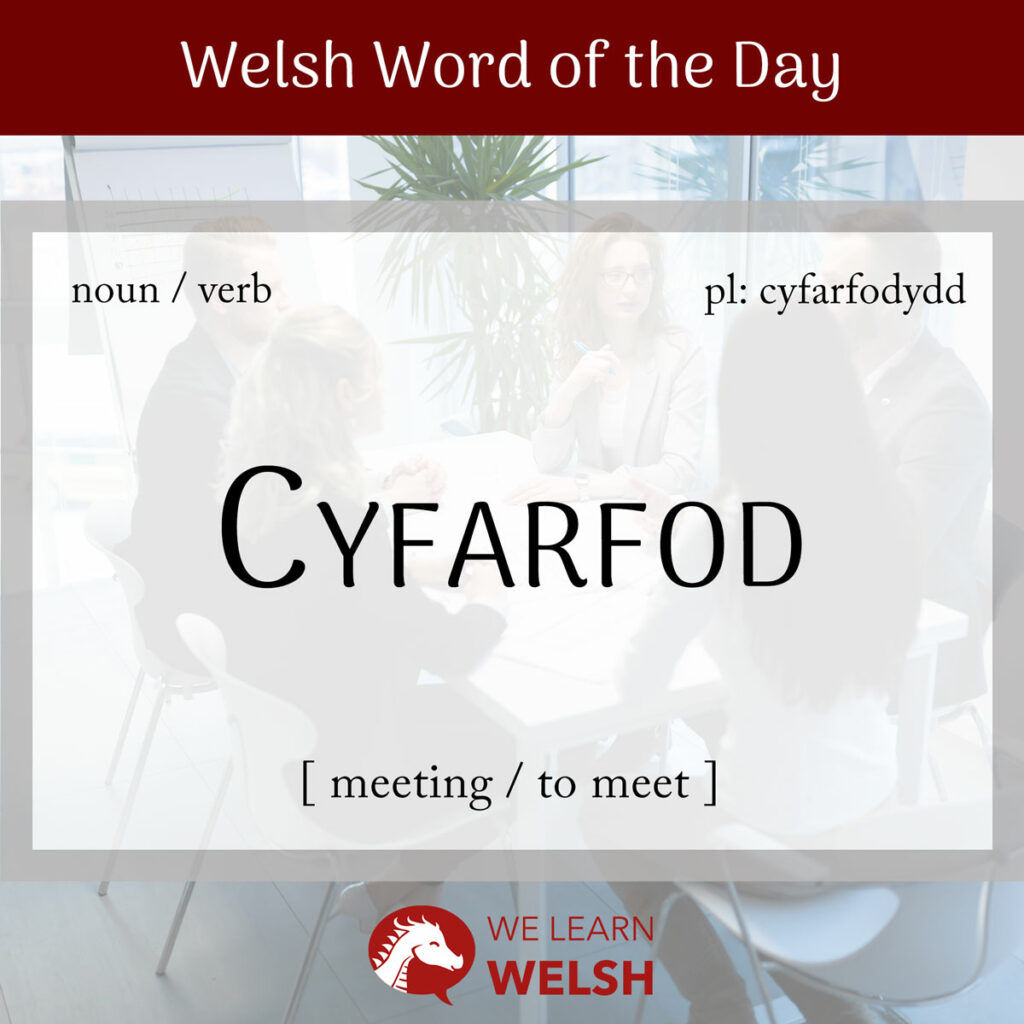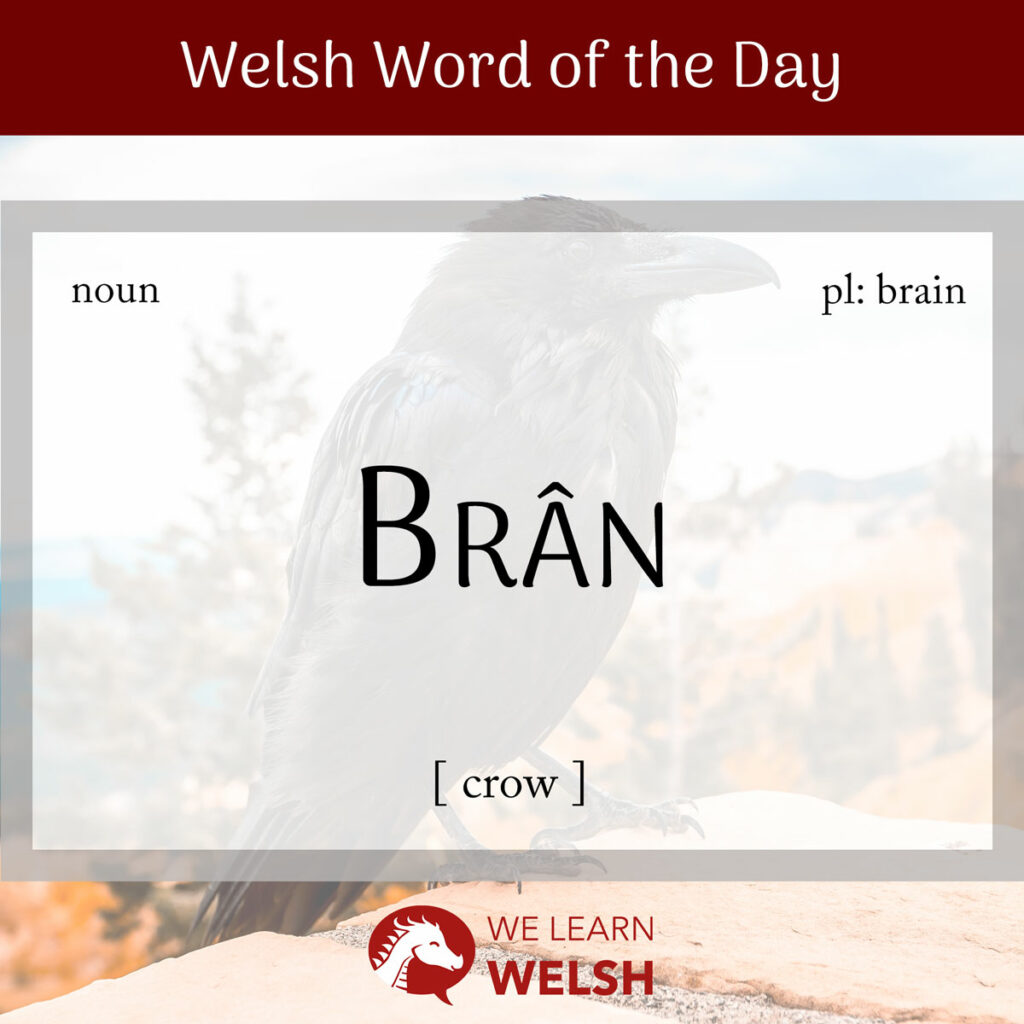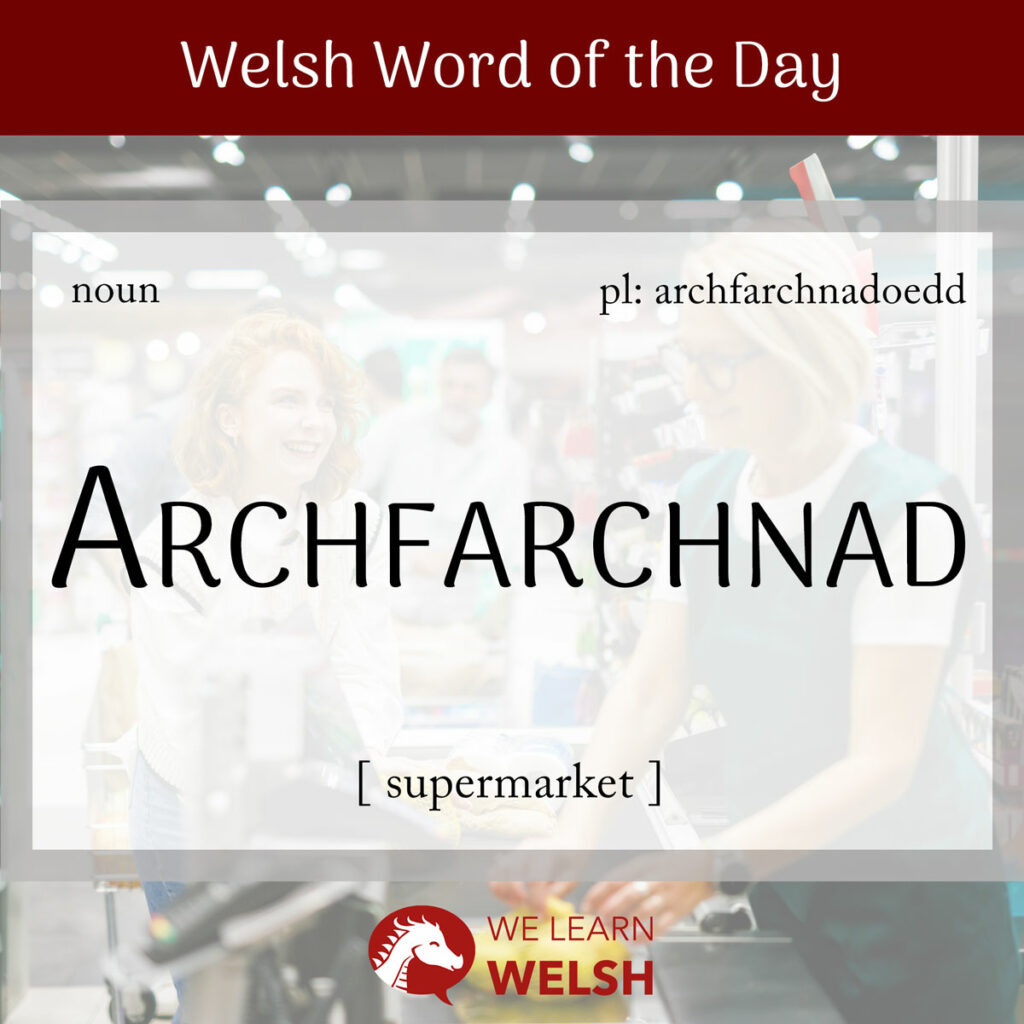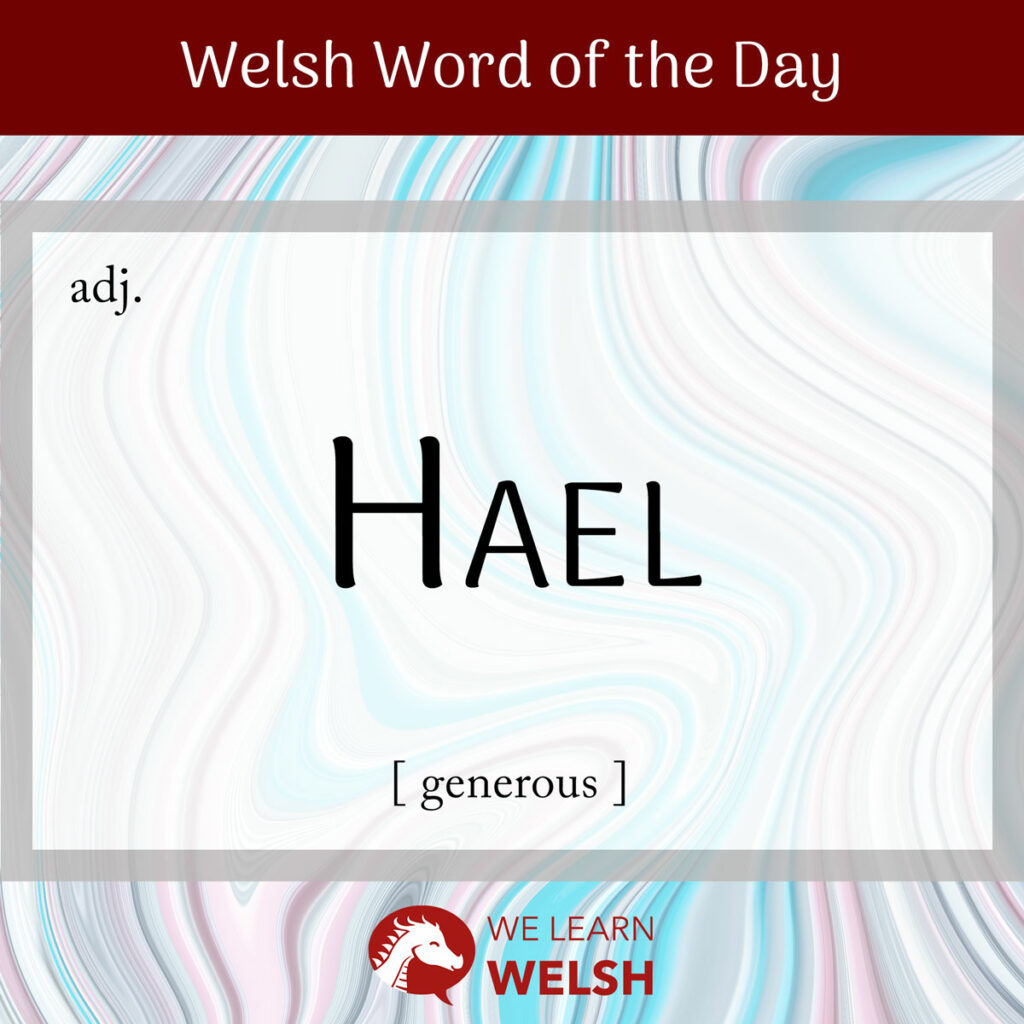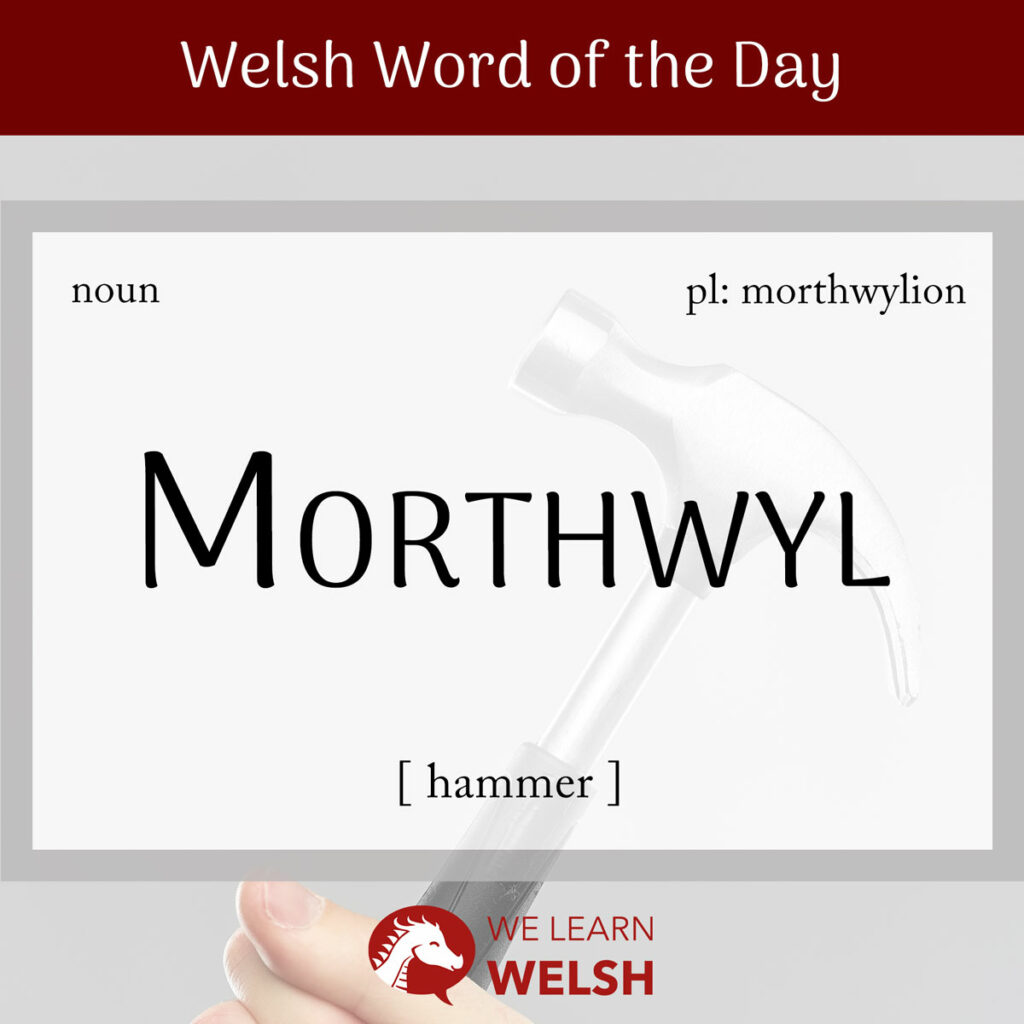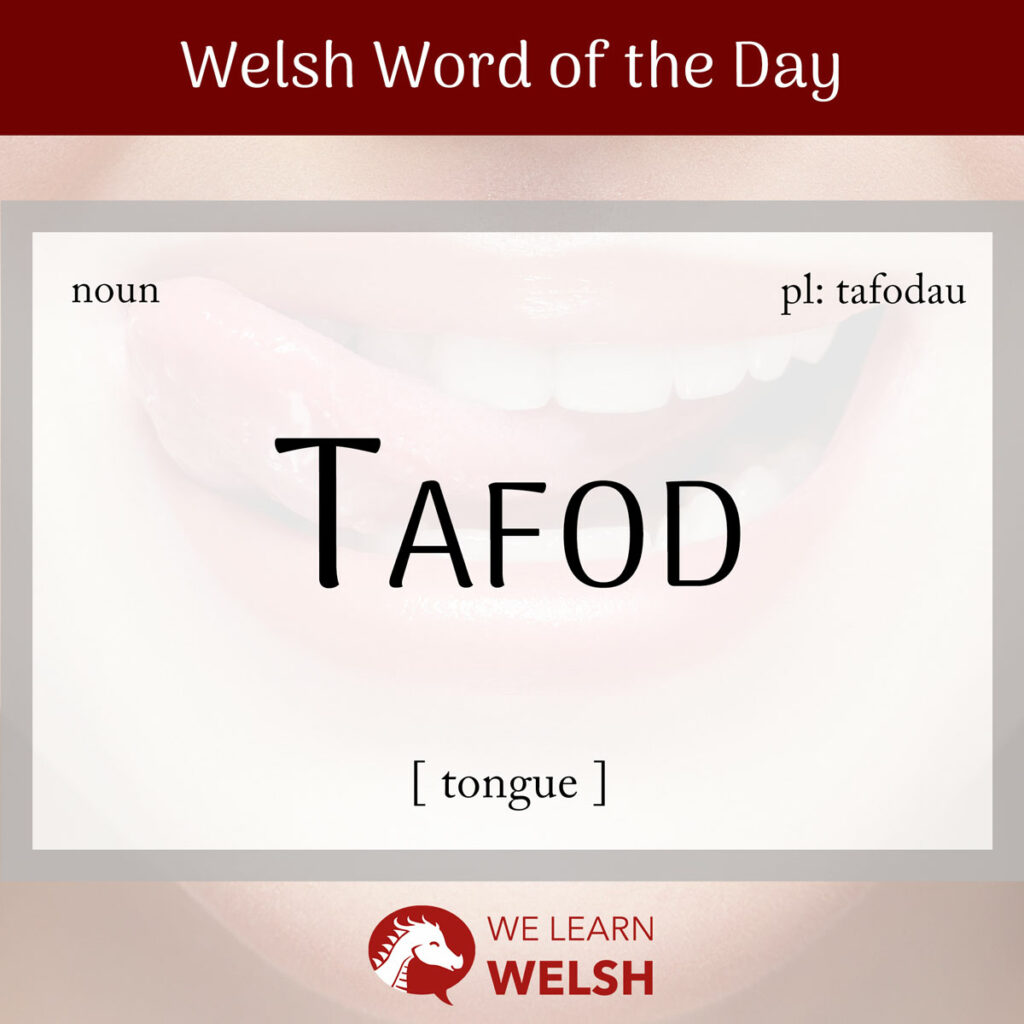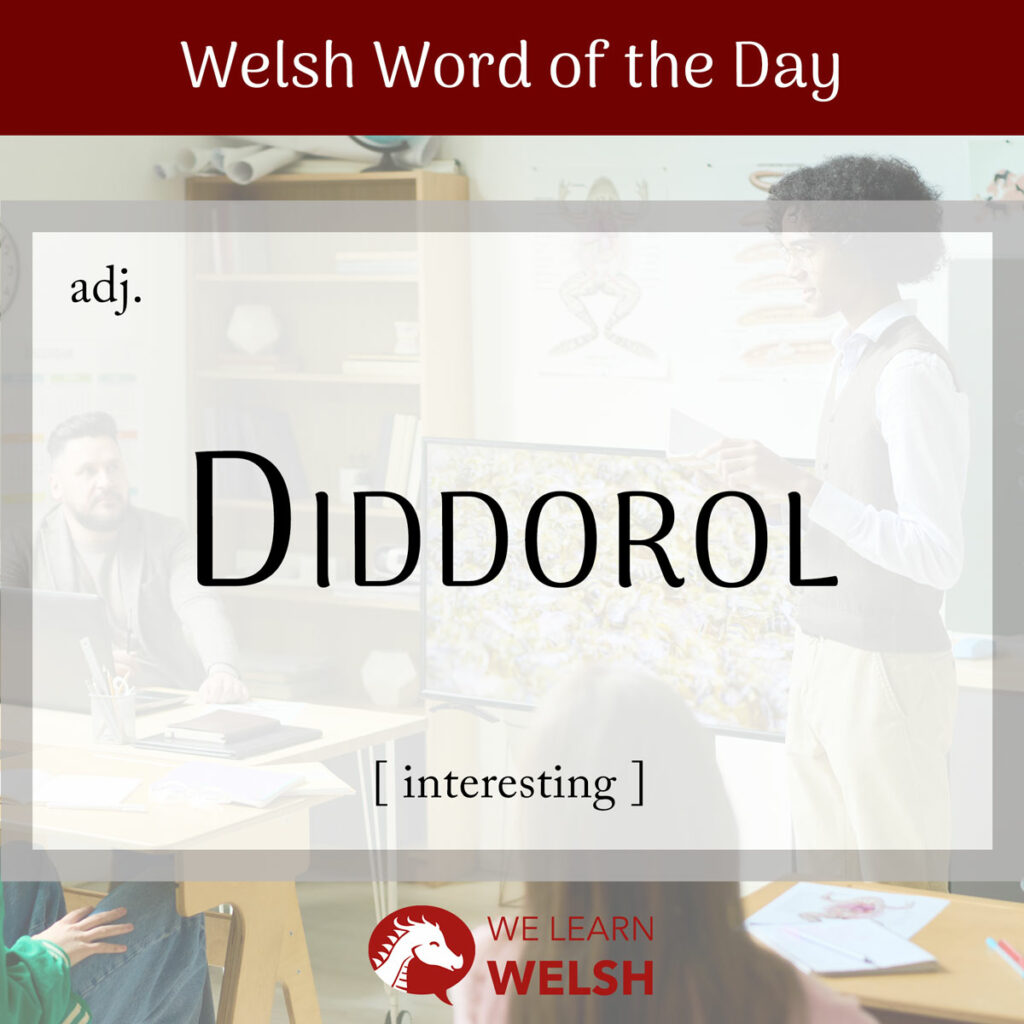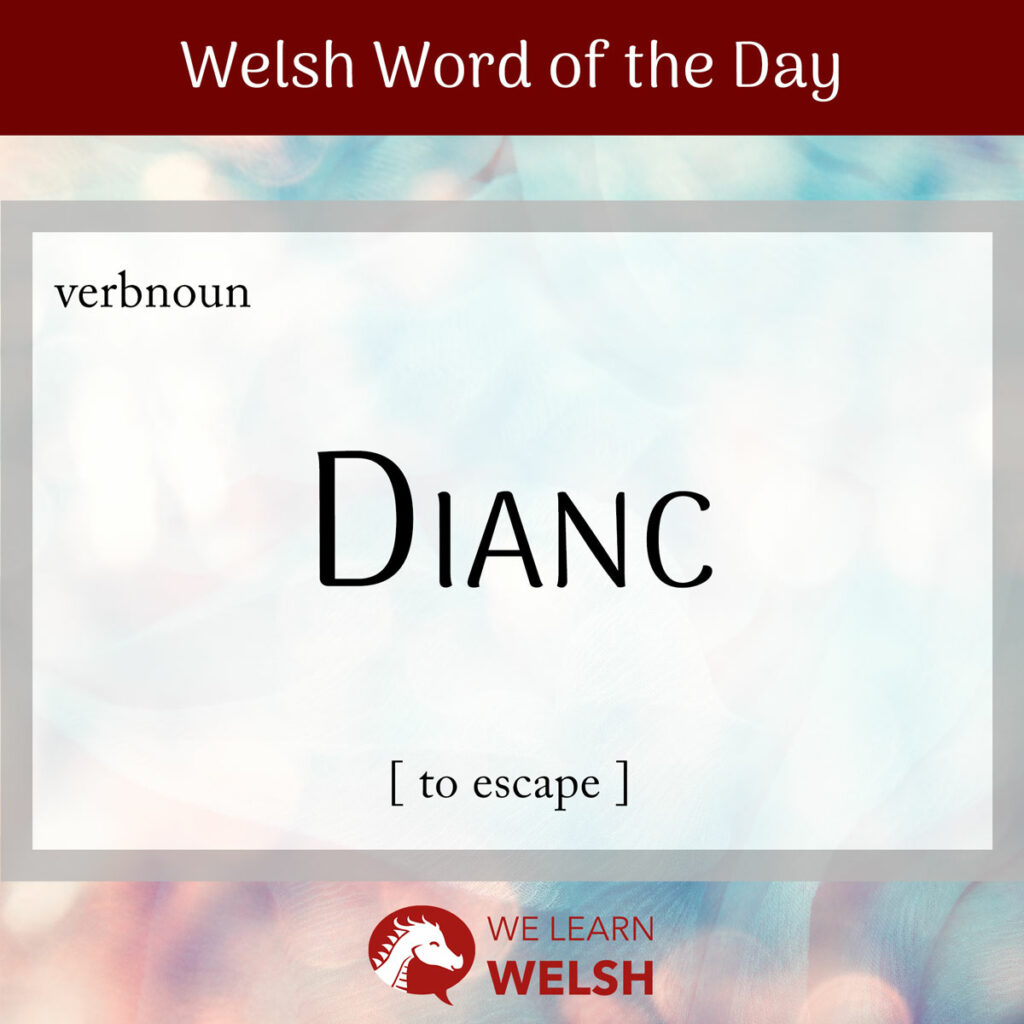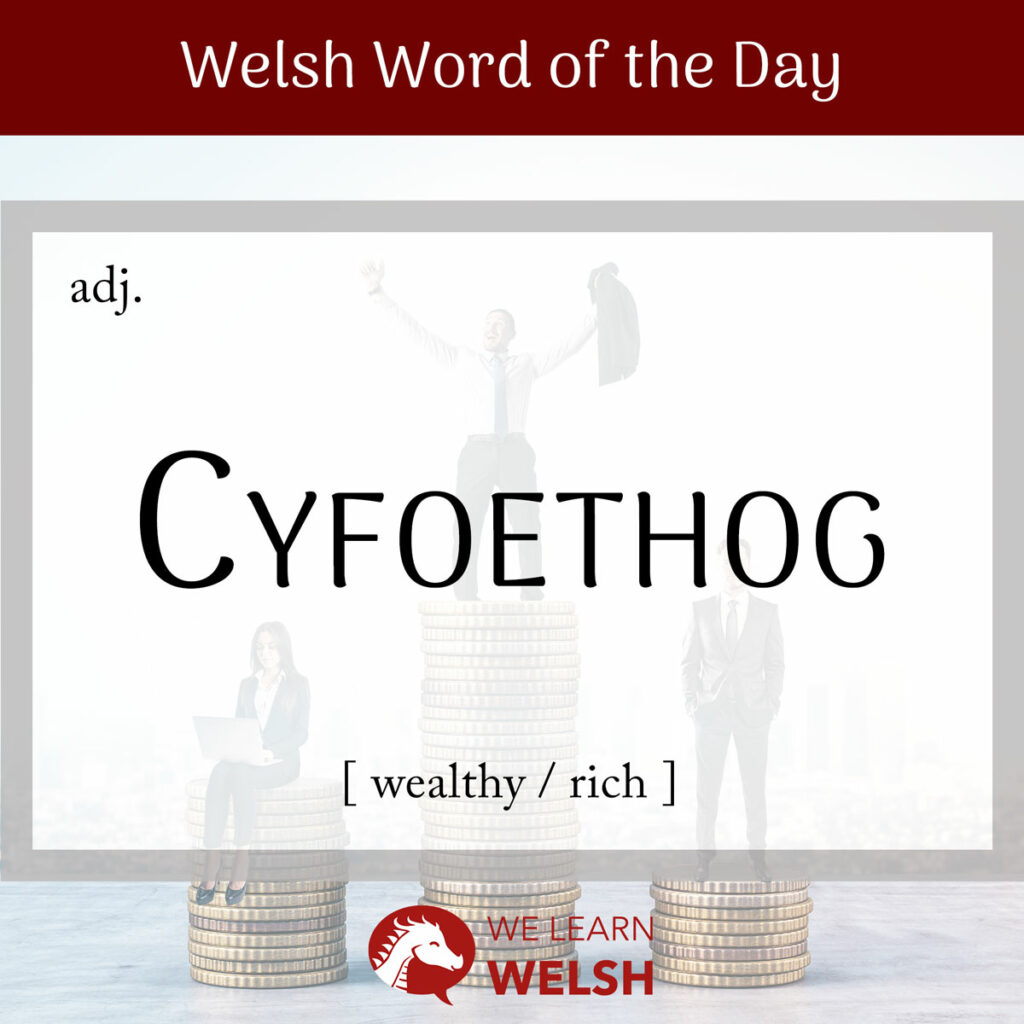Welsh Word of the Day: Cyfarfod (to meet / a meeting)
Our Welsh word of the word today is cyfarfod, which is both a verb and a noun. As a verb, it means to meet, and as a noun, it means a meeting – as in the kind that you have yn y gwaith (at work). The plural form of the noun is cyfarfodydd. cyfarfod to …

